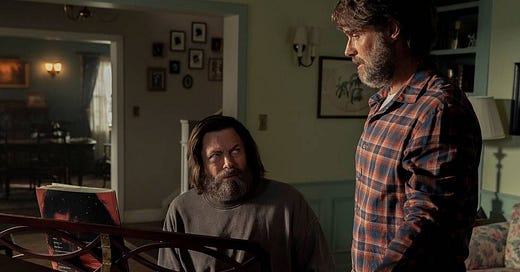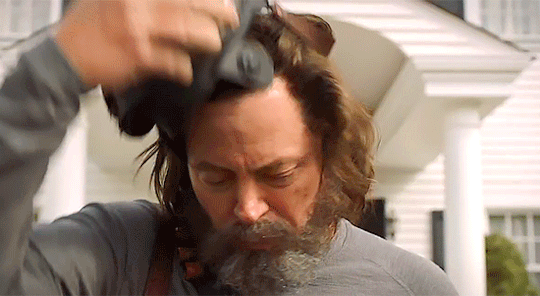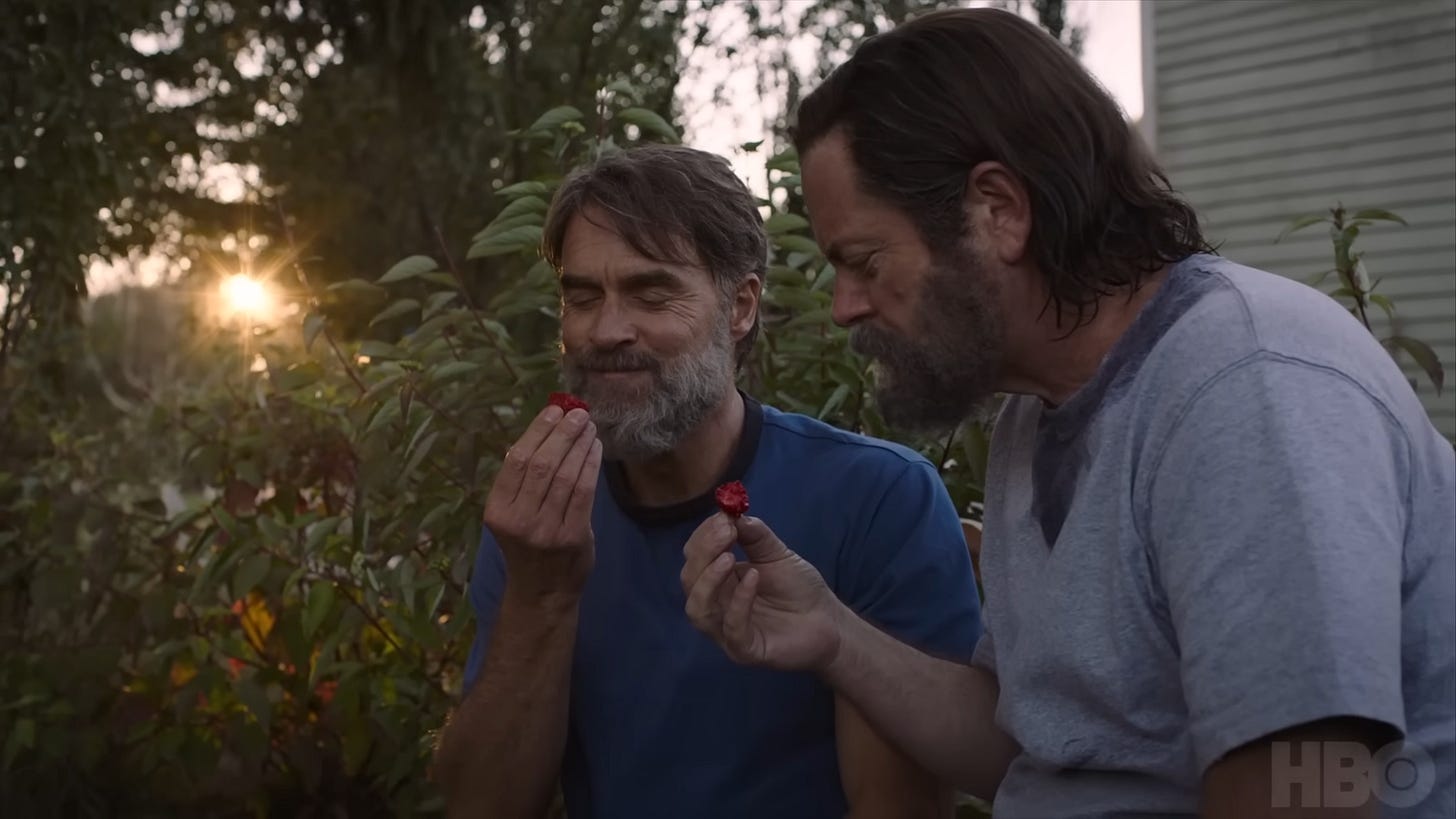This essay contains spoilers for episode 3 of “The Last of Us.”
A few weeks ago I mentioned that I was starting to watch “The Last of Us” on HBO. I have really been enjoying the show so far. I never played the game, so I came into it fairly blind, just as someone who loves horror and Pedro Pascal. And while the horror elements haven’t been nearly as gruesome as I expected, I have been engrossed by the story elements of the show.
I am a big proponent of television giving us more representation. In legislatures all over the country, LGBTQ people are facing more and more state sponsored discrimination. As LGBTQ characters populate television and movies, it can have an impact on the way that people think about them. This becomes even more important when we look at the kinds of stories being told.
Openly queer characters being on television are a more recent phenomenon, gaining some acceptance in the 1990’s, though there were definitely gay characters stretching back into the 1970’s. Despite the growing number of LGBTQ characters being introduced into mainstream television over the past three decades, the number of cases of positive representation have been far fewer.
Certainly there have been positive examples, but frequently the queer character has a tragic story, and often, they simply don’t survive. The “bury your gays” trope is one that has reared up in far too many situations. LGBTQ characters die by suicide or hate crime with regularity in media, often shortly after they are comfortable admitting they are gay or when they find happiness in a new relationship. And while hardship certainly is a part of the life of any minority, focusing exclusively on that to the exclusion of any joy is a huge disservice to the LGBTQ community. Seeing yourself represented only to immediately suffer and die is not something that helps folks feel actually seen. And it doesn’t help people see you as more human.
Which is why Sunday night’s episode of “The Last of Us” entitled “Long, Long Time” has immediately become a touchstone for queer romance.
When the apocalypse comes to Bill (Nick Offerman), he is ready. As a doomsday prepper, he was just waiting for this to happen, and he’s perfectly content to live out his life alone in his home, eating rabbit and drinking wine. But then Frank (Murray Bartlett) falls into one of his pits and they both fall in love.
Stories of romance in the midst of the apocalypse are nothing new. But there is something different about this one. And yes, it is because Bill and Frank are a queer couple.
In one of the most beautiful scenes of the episode, Frank is forcing Bill on a run with the promise of a surprise at the end. They arrive at a house where Frank reveals a patch of strawberries that he planted for them. They kneel down together and share this moment of sweetness and utter delight. In the middle of the end of humanity, they find contentment in this simple pleasure.
Bill apologizes for getting older faster than Frank and Frank responds, “I like you older. Older means we’re still here.”
In any apocalypse story where this was a straight couple, that would be a solid line. Surviving in the middle of a field of mushroom zombies is hard, and it’s worth celebrating every day alive with the person that you love. If Glenn had ever said that to Maggie in “The Walking Dead,” I’d have swooned.
But this being a gay couple gives this small line of dialogue so much more depth. A lot of gay men didn’t survive the AIDS crisis in the 80’s because they were sacrificed at the altar of fear and misinformation. It took four years for President Reagan to acknowledge the AIDS epidemic, even as it killed thousands.
And many who survive illness still don’t make it to “older.” LGBTQ people generally have much shorter life spans than their straight counterparts. If you’re kicked out of your home and spend time homeless, that matters. If you aren’t able to get a job because you’re trans, that matters. If your government actively tries to keep you from being who you are or loving who you love, that matters.
This episode has tragedy in it. No one escapes tragedy. But the lives of Bill and Frank aren’t told in the context of tragedy, they’re told in the context of love. They’re told in the context of two people growing old together. They’re told in the context of good days and bad days and caring for someone in the middle of all of that.
In one scene with Joel (Pedro Pascal), Bill rejects the term “prepper” to call himself a “survivalist.” But until he meets Frank, his survival has been that he has rejected the part of himself that loved men. He lived a solitary life so that he could survive. He was self-sufficient in the most practical way.
Frank, however, sees more in Bill. He calls Bill away from the survival that he has known into a much deeper kind of survival. One where you sing Linda Ronstadt to a new friend. One where you spruce up your neighborhood because paying attention to things is a way to show love. One where you accept help from strangers to better protect your loved one.
One where you savor a strawberry with your partner.








This is such beautiful writing! I loved your take on this episode, very touching